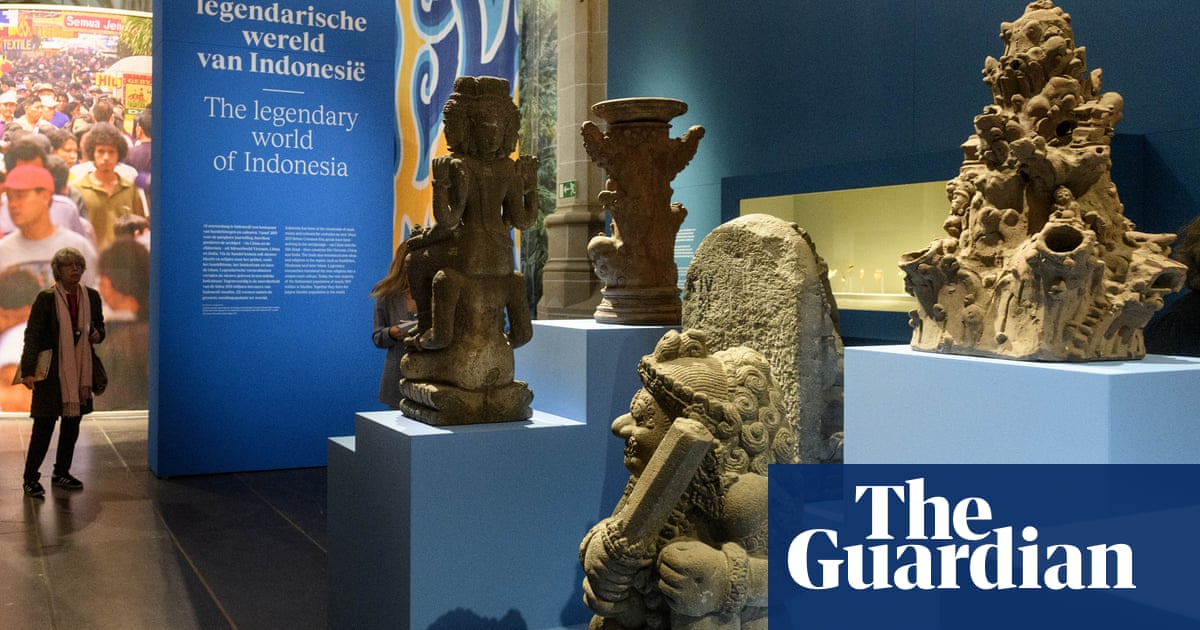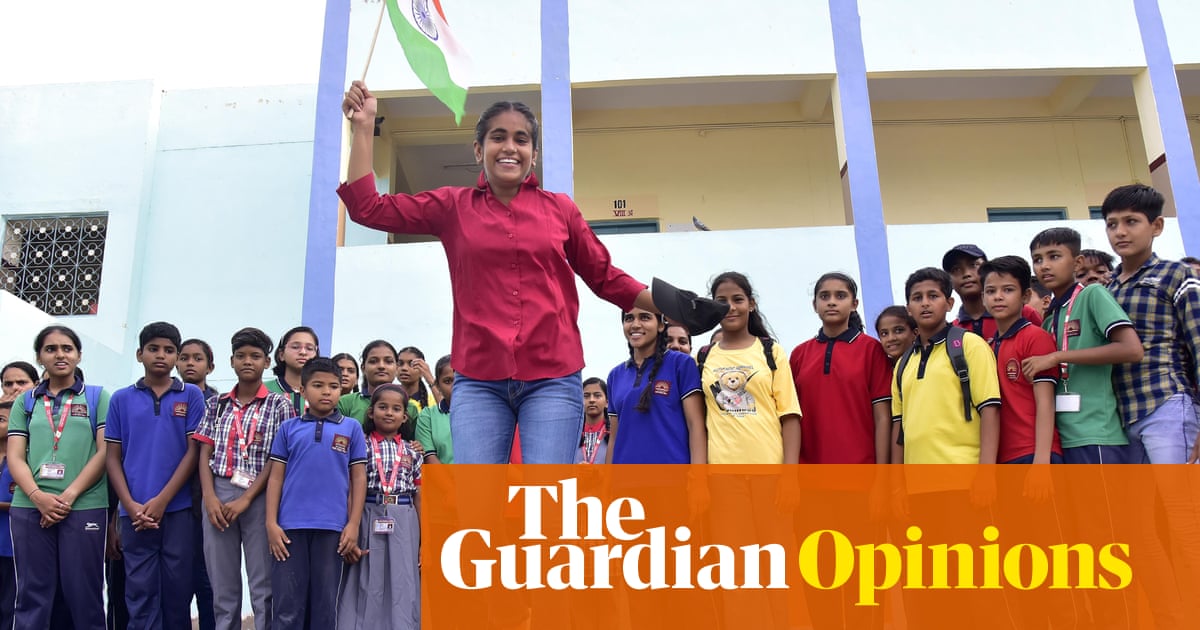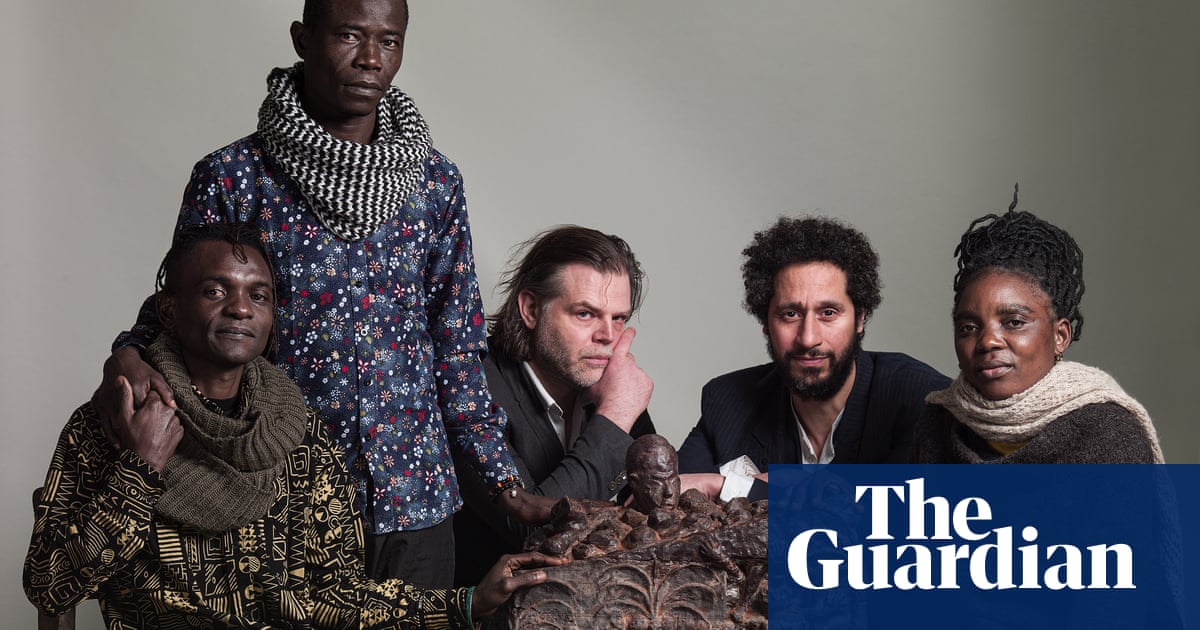
Its political centre, The Hague, may call itself “the city of peace and justice”. But in few European countries is the process of confronting the colonial period proving as fractious and divisive as in the Netherlands, where opposing sides have in recent years struggled to agree on who was victim and who was perpetrator.
This month, an exhibition at Amsterdam’s Nieuwe Kerk gallery space and two new books in a major historical series try to establish common ground over the violence that ensued after Indonesia declared independence from Dutch colonial rule in 1945.
“Every day, we have seen how much of our past related with this former colony is still raw and unworked, denied, fought against or praised, when many others think differently about it,” said Annabelle Birnie, the director of the Nieuwe Kerk, which launches the Big Indonesia show on Saturday. “Now that second and third generations are asking questions that are difficult to answer, it’s time to look history straight in the eye.”
The Netherlands’ control over Indonesia, 7,000 miles from its own borders, began in the 17th century. During the second world war, colonisers turned colonised as the Netherlands was occupied by Nazi Germany and what it called the Dutch East Indies was seized by imperial Japan, with many Dutch soldiers taken as prisoners of war and women sexually abused by Japanese officers and men.
The current debate in the Netherlands centres on what happened next: after Indonesia’s future president Sukarno declared independence on 17 August 1945, the Dutch fought to prolong colonial rule, often through barbaric means, before ceding on 27 December 1949.
Over a four-year period, the indigenous Moluccan community was displaced and about 100,000 Indonesian fighters and civilians died, as well as about 5,300 Dutch nationals.
As evidence about the events of the period is unearthed, there have been waves of controversy, and in 2016 the Dutch parliament decided to fund a broad study to establish as accurately as possible an official version of events. It found that the Dutch armed forces used extreme force on a structural basis – quite “at odds with the rose-tinted image of the Netherlands”, it said. In 2020 King Willem-Alexander apologised for “excessive violence”, and this year 478 looted Indonesian objects were handed over.
Peter Romijn, a co-author of the new book Tales of Violence – part of the historical series – said there had long been evidence that extreme violence occurred as the Dutch fought to preserve their colony. But the time it took for news from the colonies to reach the metropole enabled a cover-up, as did a process of “colonial dissociation” – of applying different moral standards at home and abroad.
Many Dutch people felt their “good intentions” as colonisers were not honoured and were angry that the allies did not hand them back Indonesia after the end of the war. “The Netherlands sent a huge conscript army overseas, 120,000 in total, who were of course neighbours, sons, brothers, fiances [of the people left behind]”, he said.
To this day, arguments erupt with frequency. In August, Amsterdam’s mayor, Femke Halsema, withdrew from a commemorative ceremony because of a speech by the apologist daughter of Raymond Westerling, an army officer who led revenge attacks on local people during the war. In 2022 there was national controversy over whether a Rijksmuseum show should use the term “bersiap”, meaning “get ready” in Indonesian and used to refer to early Indonesian violence against the Dutch population.
Campaigners for the recognition of Indonesians’ losses, such as Jeffry Pondaag, chair of the Dutch Honorary Debts Committee Foundation, advocate compensation for all damage and gains from colonial activity. “As long as the Netherlands exists, it has a wealth with blood on its hands,” Pondaag said.
Relatives of the military disagree. Hans van Griensven, chair of the Dutch national veterans society, does not deny improper behaviour but says there is an “insulting” one-sided narrative that ignores the realities of war.
“People were killed by Indonesian parties, fearing every moment [their] life will end in a gruesome way,” he said. “That gives a certain anxiety and stress that makes you ‘trigger happy’. And who were these military troops? Young lads from the country, who had just experienced a war and were dropped with no good training, information or education into a conflict where they were told they would be restoring peace and order. They landed in a guerrilla war.”
The approximately 2 million descendants of the Dutch-origin population who lived in “Dutch East India” remain a sizeable and often sensitive presence in the Netherlands. “The people were born there, they couldn’t do anything about [colonialism],” said Micha’el Lentze, a spokesperson for the Federation of Indian Dutch. “You can’t make a group of people responsible for what a state does. Our victims have never been recognised, and today they are stamped perpetrators.”
But many find such views deeply offensive and retrograde. They argue the Netherlands needs to take a lead in tackling its past crimes head-on if it wants to maintain a reputation that comes with being home to international tribunals and courts – including a new International Centre for the Prosecution of the Crime of Aggression against Ukraine.
“It’s so 180 degrees from the view we’ve had of ourselves,” said Liesbeth Zegveld, a human rights lawyer who successfully represented Indonesian survivors.
Esther Captain, a historian and contributor to the book Beyond the Pale, said that with the scrutiny of new generations, old certainties about Dutch morality were being challenged.
“In the Netherlands, the urge to be right, to be ethically on the correct side of history, is very strong, and we do have this tendency to tell others how they should behave,” she said. “But we are being implicated in things we cannot be proud of any more. That hurts, we have to work that through and we don’t have the instruments. That’s the reason it’s such a big debate we cannot ignore.”
For Indonesia, the focus of the current conversation is less on broader themes of right and wrong – not least because of its own human rights history. Its emphasis was on concrete steps to return colonial loot, said Hilmar Farid, director general of Indonesia’s ministry of culture, at a handover ceremony in Leiden in July.
“For us, the proclamation of independence in 1945 is the beginning, while here, the transfer of sovereignty in 1949 is considered to be the start of independence,” he said. “Of course it has political and legal implications as well. If independence is 1945, then how do we position the attacks on the nation, the military campaign in 1947-48 and sending off troops, different military operations? Then they would be illegal from the perspective of the Dutch.”
When the Dutch government had expressed its apologies for past misdemeanours, Romijn said, it had been careful to avoid phrasing them in such a way that would legally bind it to paying compensation. Although the outgoing prime minister, Mark Rutte, said in parliament in June that he accepted 1945 as the start of independence, the legal date remains 1949.
In the meantime, documentaries, photographs and traumatic memories keep surfacing, some of which will be presented at the Nieuwe Kerk exhibition. “You ask yourself why in God’s name we are researching this violence so late, why the question of how the Indonesian people experienced the war is only asked so much later,” said Pieter Eckhardt, its curator.
As in other countries grappling with their colonial heritage, the debate is not just about the past but also about the now. “This is about living together, and not something you solve with a new regulation or a compensation fund,” Zegveld said. “It’s a comma and not a fullstop, a continuing discussion. But, please, a discussion with the facts.”











